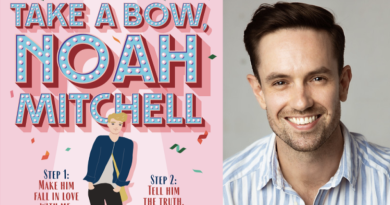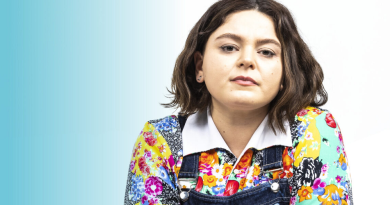Are cruel intentions the preserve of the powerful and privileged?
The eve of any new year throbs with hope, anticipation and optimism. This is especially true of the dawn of a new millennium. Yet the first two decades of the twenty-first century have been sandwiched between a brace of cataclysmic global events: the history-defining 9/1l catastrophe (perhaps the epitome of cruel intentions) and a deadly pandemic that left no part of our planet unaffected.
Admittedly, in the intervening years there’s been some good stuff – Barack Obama’s inauguration as the USA’s first ever black president, rapid advances in technology, and increased social awareness. But such signs of progress have been dwarfed by a seemingly endless succession of soul-destroying phenomena: war in Iraq, the worst global financial crisis since the Great Depression, the Syrian Civil War, the Boston Marathon bombings …
The world is a cruel, cruel place. In this context, the opportunity to be transported back to a time when troubles were more localised, when music was more joyous, and when events like the Twin Towers attacks were beyond the scope of our imagination, is all too tempting. For this was a time when our universe was egocentric – the most important events were those that happened within our own bubble. Time travel is exactly what the hugely successful musical jukebox version of Cruel Intentions does, and its wide-ranging appeal is obvious. Those of us who recall the 1999 film – itself inspired by 1782 French novel Les Liaisons Dangereuse and the 1988 film Dangerous Liaisons – can indulge in reminiscences of the music and culture of the 90s. Meanwhile, younger audiences can connect with the timeless angst of complicated relationships and catchy tunes, while simultaneously raising an eyebrow at the gender stereotyping and political incorrectness. For audience members of all ages, we may even feel a little smug at how much we have evolved. Consequently, this is a musical with the potential to make us feel good about ourselves – but, in the words of one of the show’s song titles, it’s a ‘bittersweet symphony’.
In Cruel Intentions: The ‘90s Musical, warped and privileged step-siblings Sebastian and Kathryn make a pact: if Sebastian can desecrate the virginal Annette, daughter of the new headmaster at their prestigious school, she will reward him by allowing him to sleep with her. Aside from the quasi-incestuous element, all sort of taboos of the time are exposed, including homosexuality and gender inequities. Ever-present is intentional manipulation of peers in the quest for personal gain and satisfaction. The actions and attitudes of these narcissistic rich kids enable the audience to experience self-indulgent behaviours vicariously, behaviours that have no acceptable place in modern society. Sebastian, for example, ultimately escapes judgement in the 90s film; in 2022, we find his actions abhorrent. Viewed through the prism of current values, we are more likely to empathise with the calculating Kathryn, a female whose conduct is tempered by the social morés of her class and gender – she has now even been hailed as a feminist icon in the magazine Bustle.
So this is a musical that holds up a mirror to both the 1990s and the present day, inviting us to compare and contrast. We may be critical of the obscene selfishness of Sebastian and Kathryn et al, and they may warrant our judgement. It’s true, we have come a long way. But is our world today really any less cruel? It seems that is full of cruelties, both intentional and unintentional – and not just administered by the powerful and privileged. It is not uncommon, for example, for the Twitterati to make the most vile of comments, clearly intended to wound.
After all, there must be some reason why audiences look back on the 90s era fondly. Nostalgia is generally perceived as affection for the past – think of the success of shows like Bake-Off – but it was originally a Greek term for a physical illness, roughly translating as homesickness. And nostalgia tends to become prominent in times of difficulty, uncertainty or dissatisfaction. Are we homesick for the 90s? For a period that is within living memory but ‘simpler’ than the global instability of the current climate? Is the yearning for the 1990s simply a damning indictment of the 2020s?
Well, aside from the two major events mentioned earlier, the twenty-first century is plagued with widespread issues. For every step forward, it seems we take two steps back – for example, gender stereotyping is now frowned upon, but has been superseded by the Gordian knot that is gender identity politics; we champion freedom of speech, then ‘cancel’ those whose views do not accord with our own; we are more ‘woke’ than ever, yet this is countered by over-correction and the erosion of common sense; we are far more aware of social ills, but this has spawned an age of rampant activism which often impinges on the rights of ordinary people. We have, of necessity, become an international community of ideologues.
And the news does little to cheer us up. This week alone, the Herald has reported that sexual assaults in Australia increased by thirteen per cent last year (sourced from the Bureau of Statistics), the highest level since records began, and that interest rates are set to hit a 32-year high of 7.75 per cent by the end of the year. Add to that the enduring and far-reaching war in Ukraine and the global cost of living crisis, and Armageddon here we come.
So thank goodness for nostalgic musical theatre! For a few hours, it is possible to escape our dystopian reality and indulge in the machinations of a few self-absorbed Manhattan teenagers and their cruel intentions. For a few hours only: goodbye, cruel world.




